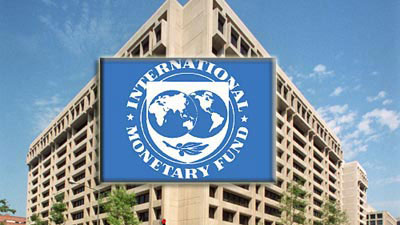The International Monetary Fund’s 20 year review of the South African economy points to significant progress in the last two decades but warns of a weak economy and the need to address elevated vulnerabilities.
The news comes as the rand slumped to six-year lows against a rampant dollar, as the country’s energy crisis continues to undermine confidence.
The review warns that deep-seated structural factors in addition to weak external demand and soft commodity prices are contributing to a tepid outlook.
The IMF forecasts growth for this year at just 1.4%, likely the lowest since the great recession and 2.1% for 2015.
Assistant Director in the Africa Division of the IMF, Laura Papi, explains.
“We think that at the moment, there are some structural impediments that are holding back growth and jobs. One key issue is increasing energy availability, also improving industrial relations, and accelerating implementation of some of the reforms in the National Development Plan. Some of the most recent data points have been quite encouraging, signalling a recovery from the strikes earlier in the year. However, we do still see the growth is still subdued.”
The 20-year review also notes that South Africa has emerged from its deeply divided and violent past into a peaceful, robust and vibrant democracy that has made major strides in improving the lives of its citizens.
But it also cautions that the consumption-driven growth model of the past few years is unlikely to be sustainable with headwinds expected from tighter global financial conditions, the uneven global recovery and softer commodity prices.
“In addition to the structural reforms, we basically agree with a lot of what the authorities are doing. The medium-term budget policy statement which came out in October steered the fiscal policy in the right direction. South African Reserve Bank has also done a good job managing inflation,” says Papi.
Low foreign direct investment identified as an additional vulnerability.
The IMF points to poor export performance and robust imports despite a large currency depreciation that has kept the current account deficit above 5 percent of GDP.
Low foreign direct investment has also been identified as an additional vulnerability, as Papi explains.
“The big challenge still is unemployment. Still about a quarter of South African citizens are without a job. To address unemployment, some of the key issues are structural issues we discussed a minute ago, are very much the relevant ones. The good news as the Minister of Finance said, these are factors that are within the government’s power to fix.”
The review has identified labour strikes and further delays in relieving electricity shortages as key domestic risks.
Constrained policy space means structural reforms are the only way for South Africa to boost job-rich growth.
On-going infrastructure projects have been identified as key; with calls for it to be complemented by increased private participation to ease pressure on the public sector balance sheet.
– By


